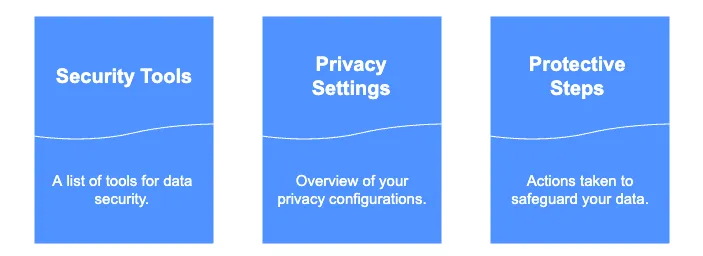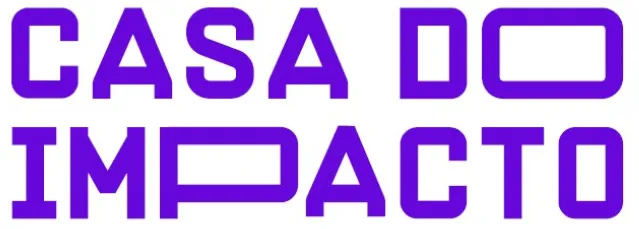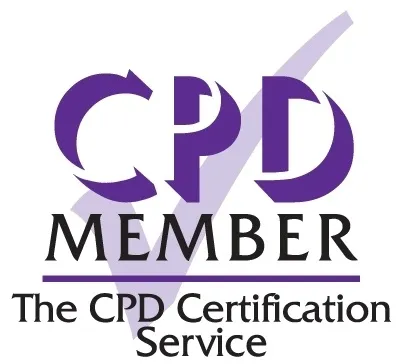1️⃣ What Is Data Privacy Management?
Data Privacy Management is the process of protecting personal and sensitive information—such as customer data, employee records, and online activity—from being misused, leaked, or accessed without permission. It involves using tools, setting clear rules, and following good habits to keep data safe in a digital world.
Think of it like managing the keys to a digital safe. Just like you wouldn’t leave your house unlocked or hand out your bank PIN to strangers, Data Privacy Management helps control who can access important digital information—and who cannot.
Key Examples:
- Secure customer data with password managers like 1Password
- Encrypt sensitive files with tools like Google Workspace Security
- Manage cookie consent on websites using Cookiebot
- Set data access controls for employees using platforms like Microsoft 365
Data Privacy Management is critical because every business — big or small — collects and stores data today. Knowing how to protect that data makes you an essential asset in any modern workplace.
2️⃣ Why It Matters in 2025 and Beyond
Every business today collects personal data—from emails to payment details—but data breaches and privacy scandals are more common than ever. Customers, governments, and investors now expect companies to take privacy seriously or face major consequences.
By 2025, 75% of the world’s population will be protected by modern privacy regulations, according to Gartner. This creates massive demand for professionals who understand how to manage and protect data across industries—from small businesses to global tech companies.
Why It’s Important:
✅ Helps businesses avoid costly fines and legal penalties.
✅ Builds customer trust and brand loyalty in competitive markets.
✅ Creates new career paths in privacy compliance, cybersecurity, and data governance.
✅ Increases remote work and freelance opportunities in privacy consulting.
💡Industry Spotlight
- In e-commerce, privacy management protects customer data like credit cards and shipping addresses from cyberattacks.
- In Healthcare, privacy skills ensure sensitive patient information stays secure and compliant with strict health data laws.
3️⃣ Real-World Applications
Data Privacy Management is essential across industries because every organization collects sensitive information. This skill solves real-world problems like preventing data leaks, building customer trust, and staying compliant with global privacy laws.
4️⃣ Who Should Learn This Skill?
This skill is perfect for:
✅ Career changers looking to enter tech roles like data compliance or cybersecurity without a technical background.
✅ Entrepreneurs who need to protect customer data while running online businesses or eCommerce stores.
✅ Freelancers offering services in marketing, content creation, or virtual assistance who handle client data.
✅ Remote workers managing sensitive information in cloud-based tools and virtual teams.
Data Privacy Management is ideal for people who want to work in digital industries but feel overwhelmed by technical barriers. It helps non-technical professionals stay relevant, boost their income potential, and avoid common risks that can damage their careers or businesses.
5️⃣ How Hard Is It to Learn?
Data Privacy Management is one of the most accessible digital skills to learn because it focuses more on habits, tools, and processes — not technical coding. The key is understanding privacy principles and practicing with real-world tools used in business settings.
Here’s a realistic learning roadmap:
💡 Pro Tip: Start by securing your own digital life first — manage your passwords, set up 2FA (two-factor authentication), and create a privacy checklist for your daily online habits. Practicing personally makes it easier to apply the same skills professionally.
Effort Required:
- 10–15 hours to understand core privacy concepts and essential tools.
- 30–40 hours to build real-world projects like drafting privacy policies or setting up secure systems.
- Ongoing learning to stay updated with new privacy laws, tools, and best practices.
6️⃣ Tools & Resources to Get Started
Here’s a list of essential Data Privacy Management tools to help you get started:
💡 Ideal for Beginners: Start with 1Password — it’s beginner-friendly, affordable, and teaches the foundation of managing digital security through strong password habits.
7️⃣ Career Pathways & Opportunities
The growing importance of data privacy is creating new job roles and freelance opportunities across industries. Here are some potential roles for Data Privacy Management professionals:
Salary data is based on U.S. industry trends and 2025 projections. Ranges are approximate and can vary based on experience, location, certifications, and company size.
Data Privacy Management skills are in high demand across industries like eCommerce, healthcare, finance, marketing agencies, and tech companies.
💡 Freelancing Tip: Start by offering simple services like writing privacy policies, setting up cookie consent banners, or helping small businesses comply with GDPR/CCPA requirements. Remote privacy consulting is a growing niche with flexible, project-based work.
8️⃣ How to Get Started Today
Here’s a step-by-step roadmap to start learning Data Privacy Management and building job-ready skills:
1️⃣ Choose a Tool
Start with a beginner-friendly tool like 1Password to practice managing and securing passwords for personal and work accounts.
2️⃣ Complete a Tutorial
Follow a step-by-step guide on how to set up secure passwords, enable two-factor authentication (2FA), and create a basic privacy checklist for your devices.
Tutorial Example: https://support.1password.com/getting-started/
3️⃣ Build a Portfolio Project
Create a real-world project that solves a privacy problem for yourself or a small business. For example:
- Small Business Owners: Write a basic privacy policy using Termly.
- Freelancers: Set up a password management system for client projects with 1Password.
- Remote Workers: Create a personal Privacy Checklist (PDF or Notion doc) for securing remote work tools.
4️⃣ Join a Privacy or Cybersecurity Community
Learn from others, ask questions, and stay updated on privacy best practices. Recommended communities:
- DataGrail Privacy Community
- TrustWorks Community
- IAPP (International Association of Privacy Professionals)
💡 Project Idea: Create a “Personal Data Privacy Toolkit” — a simple document or Notion page where you list your security tools, privacy settings, and steps you’ve taken to protect your personal and professional data. This is a great portfolio piece to show future clients or employers.









